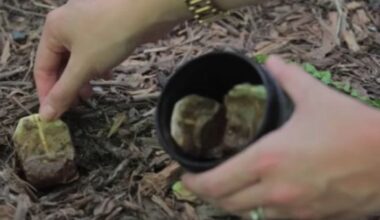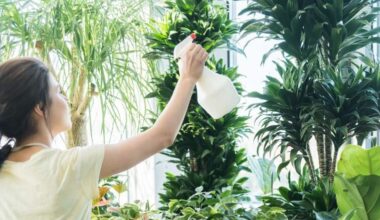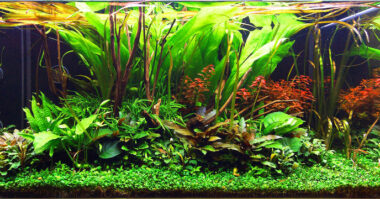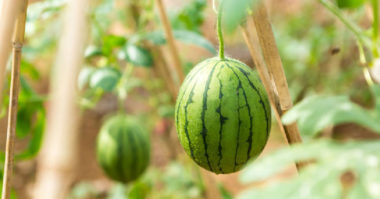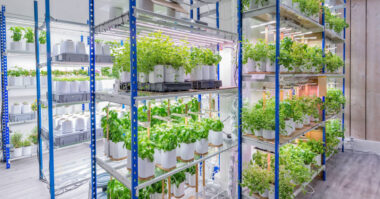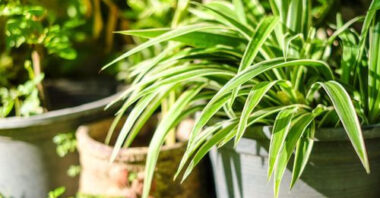Everyone knows that plants respond to light, gravity and touch. But is there any point in saying sweet nothings or serenading them? Several surprising experiments may well lead you to change your mind:
Contents
Does talking to plants help them grow?
It was researcher Cleve Backster who first demonstrated that plants are receptive to human intentions.
To try to find out if the plant could show signs of emotion, he connected it to a polygraph. The result was more than surprising: just by thinking of going to get a matchbox to burn one of the leaves, the polygraph line began to grow larger and larger, until it crossed the upper edge of the paper.
The researcher later confirmed this experiment with many others, always leading to the same conclusion: plants are sensitive to human emotions and intentions.
Another experiment conducted this year by the Ikea chain of stores, which aimed to fight against school bullying in the United Arab Emirates, goes in the same direction.
For the experiment, two plants were placed side by side and students were asked to compliment and say sweet nothings to one, and to verbally abuse and criticize the other. Words that were recorded and transmitted to the plants for 30 days.
At the end of the 30 days, while the complimented plant continued to grow, the bullied plant saw its leaves dull and fall. Both plants were exposed to the same amount of sunlight and received the same amount of water.
5 ways to talk to plants to help them grow
1. Compliment your plants with kind words
Plants are sensitive to the sounds and good vibes contained in the words you speak. You’re probably familiar with this very famous experiment, named “Bully a plant”, conducted in 2018 by Ikea stores. Two plants are placed next to each other, with equal sunlight and watering conditions. One is fed compliments and words of encouragement, while the other is verbally assaulted with hateful words in the form of prerecordings.
After 30 days, the results speak for themselves: while the complimented plant continues to thrive and grow, the criticized plant struggles to keep itself alive. As with children, shower your beautiful shoots with repeated, heartfelt compliments! Talk to your plants with sweet, positive words, expressing your love and gratitude for the benefits they bring to your daily life: it helps them grow well!
2. Tell stories or poems to your seedlings
Another (beautiful) way to talk to your plants so that they thrive perfectly is to tell them stories or poems. Far from being deaf like their pots, plants are receptive to the sounds and emotions you emit. Why? Because plants communicate with their environment through a chemical and vibratory mode.
Communicating with plants means consciously exchanging information using words! Choose a beautiful poem by Lamartine or a tale by La Fontaine, with the theme of the garden, the orchard, the spirit of the flowers, the vegetable garden or even the bees’ foraging and tell a story to your plants! You will create positive emotions in yourself that will be transmitted to your plants. You will thus make their chlorophyll vibrate.
3. Cultivate good intentions
The plant world is not insensitive to what we can say to them and even to what we can feel or think. If you still doubt it, discover the work of Cleve Backster, known for his experiments on the emotional intelligence of plants in the 1960s. Even if his thesis is still not recognized by the scientific community, it proves that all living cells in the plant world are indeed endowed with senses that allow them to tune into events, emotions and human intentions in their environment.
And to prove it, he connected a plant to a polygraph before going to look for a match with the intention of burning one of its leaves. The plot then suddenly changed: a reaction occurred! He then conducted other experiments to further support his main thesis: plants are receptive to the emotions and vibrations that surround them. So you can talk to plants simply with your thoughts, taking care of them with your best intentions.
4. Use the sounds of nature to talk to plants
If plants are receptive to music, emotions and the human voice, they are even more receptive to certain vibrational frequencies associated with certain sounds. The flutter of a butterfly’s wing, the rustle of a caterpillar on a leaf, the buzz of bees foraging on flowers, the sound of water droplets hitting the ground when a storm arrives… Nature has an incredible sound bank that the human ear does not (almost) perceive.
5. Grow your plants with music
If you have trouble with the concept of talking to your plants in your own words, you can play them classical music! Even though plants don’t have an auditory organ, they do perceive sound and react to music.
In fact, the positive influence of soft melodies on plant growth has been the subject of numerous scientific studies and experiments. One of the best known is Joel Sternheimer’s genodic (contraction of genetic and melodic), which demonstrates the positive effect of music on plant development (salads, cucumbers, tomatoes, etc.) and disease resistance in grapes.
But not just any kind of music! It is structured and harmonious music that gets really incredible results. By playing classical music for two hours a day to some tomato plants, German scientists saw these plants grow much faster in two weeks than those without it.
Summary
Although talking to plants to make them grow may seem a bit far-fetched, the influence of music or the human voice on plant growth has been scientifically demonstrated. Communicating with plants is good for you and for them! By contributing to their well-being, you cultivate an intimate relationship with the plant world, a sensitive experience that invites calm and wisdom.

